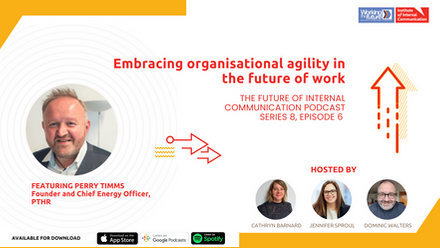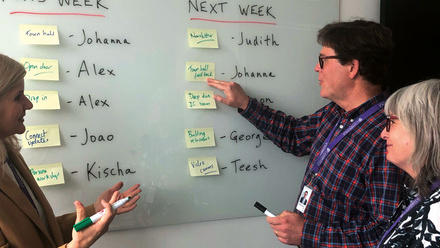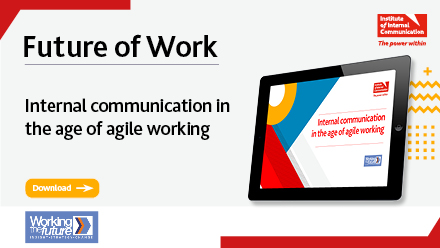Should professional communicators care about Agile in 2024?
Among the many attributes needed for businesses to survive and thrive in a continuously changing world, adaptability is one of the most critical ones.
To keep pace with uncertainty, companies need to be adaptable and resilient, and able to pivot their priorities superfast. Superfast is not as easy as it sounds!
To do this, many organisations have and continue to adopt Agile Ways of Working.
Let’s first recap, what is Agile? And let’s set aside its traditional definition and instead look at it from a common sense perspective. Agile is a way of working with pre-defined practices that focus on:
- Value. It does this by always focusing on the highest priority work, which means more efficient use of precious resources.
- Speed. It delivers value in smaller chunks to users, getting their feedback along the way, and using this feedback to build on the output. Building and delivering all in one go not only takes time, but may prove costly if the end output is no longer relevant.
- Easy pivots. It sets teams up to respond to change, fast. That might be due to a change in the way customers behave, or external factors such as Covid or the market economy. Being set up this way means companies can make decisions fast and quickly assign teams to priority work.
- Continuous feedback. Getting smaller chunks of value out to customers and getting early feedback means better quality end output.
- Continuous improvements. It’s about always looking to bring efficiency into the day-to-day work.
- Rapid decision-making. It sets teams up to be autonomous and make decisions. After all, they are SMEs in what they do.
- Strong culture. It strives to create better working environments and a happier workforce.
So it’s easy to see why companies across industries have moved to Agile Ways of Working. Now the journey to being an Agile organisation isn't easy, and it’s common knowledge that many transformations suffer with change fatigue. Getting people on board with new ways of working is an ongoing challenge for professional communicators.
Communications gaps in transformation programmes
1. No communications strategy
Transformations generally impact large groups of colleagues. Yet, in our experience, communications representatives (and HR for that matter) aren't included in the strategic level conversations ahead of a transformation. This means there’s little to no prep planned to take their people on the epic change journey ahead.
2. No communications planning
There isn't enough understanding of the benefits of good communications and how to leverage this golden opportunity. Communication is thought of as a side-of-the-desk job or an afterthought. Worryingly, transformation leads tend to think the unstructured, ad hoc communications they’re putting out are good enough. Without a well thought out plan and approach, they are in fact creating more confusion.
In the absence of data to measure the impact of a lack of good communications on a transformation, the work of internal communications is not valued or recognised.
3. Token communications budget
Significant budget gets allocated to transformations, but little to none gets allocated to communications. If a provision is made, it’s left to the big consultants who have no inside knowledge on the company, its people, the culture, or the tone and language of its communications.
So should we professional communicators care about Agile?
Yes, absolutely! Internal communicators are essential for bridging this alignment gap and designing communications that take people on a transformation journey and get their buy-in. Without agility, it will become very difficult for companies to survive, attract talent and thrive in the competitive marketplace. So there is a pivotal role for internal communication professionals to play in their organisation’s transformation.
Interested in learning more about Agile?
Blog author, Erum Quddus, runs the popular Leading Agile Communications Course for the IoIC. The next course is on 30 January. Find out more here.






